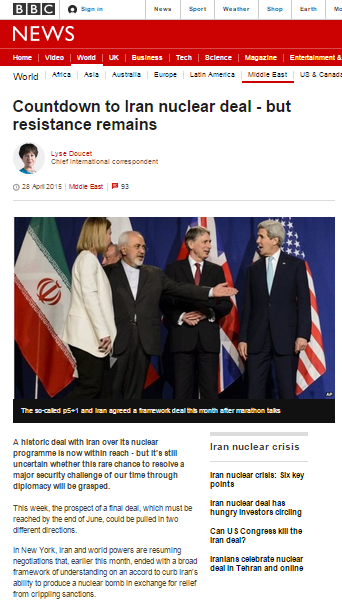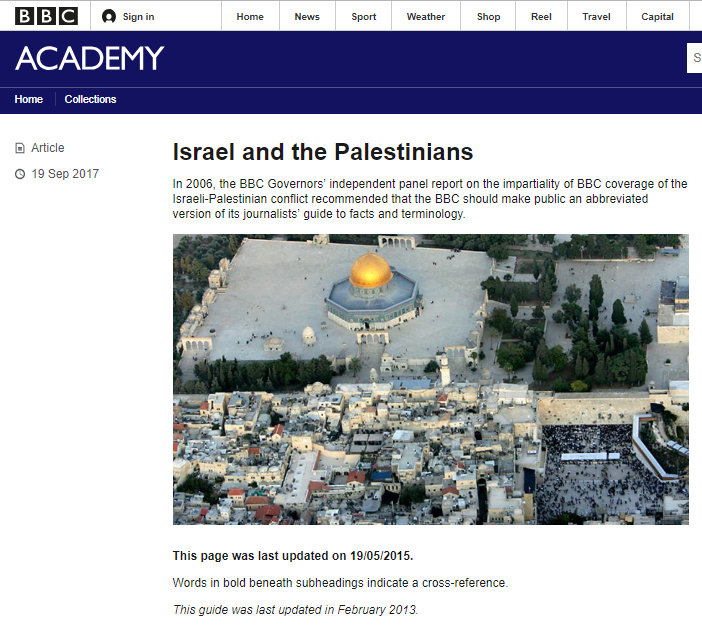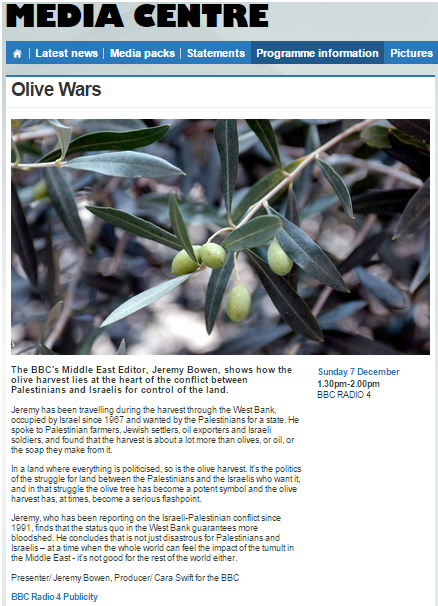In the weeks that have passed since the framework agreement was reached between the P5+1 and Iran in Lausanne the BBC has made no serious attempt to inform its audiences of the conflicting accounts of the terms of the deal or of the reservations concerning its efficacy expressed by numerous commentators, including experts in the field.
The appearance of an article by Lyse Doucet titled “Countdown to Iran nuclear deal – but resistance remains” on the BBC News website’s Middle East page on April 28th did nothing to rectify that.
In her opening paragraph Doucet lays out some clear signposting, directing readers towards a specific view of the agreement.
“A historic deal with Iran over its nuclear programme is now within reach – but it’s still uncertain whether this rare chance to resolve a major security challenge of our time through diplomacy will be grasped.”
Throughout her article Doucet makes no attempt to objectively examine the question of whether or not the deal will actually do the job it ostensibly set out to do.
“In New York, Iran and world powers are resuming negotiations that, earlier this month, ended with a broad framework of understanding on an accord to curb Iran’s ability to produce a nuclear bomb in exchange for relief from crippling sanctions.”
Significantly, Doucet refrains from any critical analysis of whether or not the actual terms of the framework agreement will in fact “curb Iran’s ability to produce a nuclear bomb” or what happens when the deal’s time limit comes to an end. Whilst superficially referring to some of the problematic issues emanating from the framework agreement, she makes no attempt to explain their significance to her readers.
“After an outline agreement was agreed in April, political discord erupted immediately over the timing of sanctions relief.
Iranian leaders have declared that restrictions would be lifted as soon as a deal was done.
However, Western diplomats say a phased process of easing sanctions depends on IAEA (International Atomic Energy Agency) verification that Iran has complied with its obligations under the deal, including a two-thirds reduction in the number of its centrifuges, limits on its uranium stockpile, and what’s been described as an unprecedented inspections regime.”
Doucet fails to clarify that the essential point is not whether or not the proposed inspections regime is “unprecedented”, but whether or not it is effective. With the terms of the framework agreement as presented by the US State Department making no demands on Iran to declare its past and possibly on-going nuclear weapons-related work (possible military dimensions – PMDs) and with it having no provisions on the subject of ballistic missiles despite that issue having been raised in UNSC resolutions, the effectiveness of inspections is obviously limited. Furthermore, Iranian officials – including Khamenei – have already declared that inspectors will not be given access to the country’s military facilities and Iran’s record of cooperation with the IAEA is of course problematic.
In addition to refraining from providing readers with any substantial information on those issues and the many others which have been raised by experts, Doucet compounds her dumbed down presentation of the issue with the following quote:
“But Ali Vaez, senior Iran analyst at the International Crisis Group, insists: “Differences are semantic, they’re spin, not substance.””
Moreover, Doucet’s description of the reservations voiced by several Middle East countries lacks gravity and the detail necessary for audiences to understand exactly why concerns about the emerging deal are being raised.
“Meanwhile, a chorus of critics across the Middle East is calling for sustained pressure on Tehran to halt its nuclear and political ambitions at a time of rising turmoil in the Middle East.
The most vociferous is Israel, which vows to do everything possible to stop a “very bad deal” which it insists threatens it, and the wider region.
Gulf states including Saudi Arabia are also deeply troubled by this engagement with a rival playing a decisive role in destructive wars in Syria and Iraq, as well as in Yemen.”
She does, however, engage in further promotion of US administration messaging.
“US President Barack Obama has invited six leaders of the Gulf Cooperation Council to Camp David this month to discuss concerns and try to convince them of the wisdom of a deal.
“This deal is the right thing to do for the United States, for our allies in the region, and for world peace regardless of the nature of the Iranian regime,” he told National Public Radio in an interview that impressed Iranian commentators with its level of detail on the contours of the final agreement.”
Towards the end of her article Doucet writes:
“A highly technical deal on a major security threat is, in this last punishing stretch, profoundly political.”
In order to understand the politics behind this issue, however, audiences obviously need to first of all have an understanding of the deal’s technical aspects. The BBC has now had almost a month in which to meet its public purpose remit by providing its funding public with the factual, technical information they need in order to reach informed opinions on the topic of the P5+1 framework agreement with Iran.
To date – for reasons unknown – it has chosen not to do so and audiences using the BBC News website for example have seen no analysis written by relevant independent experts or interviews with government officials from countries such as Israel, Kuwait or Saudi Arabia explaining their concerns in detail. Instead, the BBC’s coverage of the topic has been notable for the fact that it has focused primarily on uncritical direct and indirect amplification of the US administration’s own political messaging on the topic.
Lyse Doucet is quite right to describe this deal as “historic”: its content will dictate the international community’s stance on the issue of when – rather than whether – Iran will be able to come into possession of nuclear weapons and it will inevitably have major influence on regional proliferation. She is also correct in stating that no small amount of “profoundly political” activity is evident, as shown for example by a recent statement from the United Nations sanctions panel.
“Britain has informed a United Nations sanctions panel of an active Iranian nuclear procurement network linked to two blacklisted firms, according to a confidential report by the panel seen by Reuters.
The existence of such a network could add to Western concerns over whether Tehran can be trusted to adhere to a nuclear deal due by June 30 in which it would agree to restrict sensitive nuclear work in exchange for sanctions relief. […]
Apart from the British notice and expressions of concern from some member states about continued Iranian procurement activities, the panel said it had received no new reports from U.N. member states of confirmed cases of non-compliance.
But it said that could simply indicate that some states are refraining from reporting violations to avoid undermining the delicate nuclear talks. It said that some members’ assessment was that Iran’s procurement and “circumvention techniques” remain mostly unchanged.” [emphasis added]
Curiously, however, the media outlet which likes to describe itself as the “standard-setter for international journalism” has concentrated its efforts on superficial promotion of the framework agreement rather than engaging in anything which could realistically be described as critical examination of a deal it acknowledges as being hugely consequential.
Related Articles:
Did the BBC News website’s reporting on the P5+1 framework agreement with Iran tell the whole story?
BBC audiences still getting cherry-picked information on Iran framework agreement
More spin than a centrifuge: BBC report on Khamenei nuclear deal speech
Another BBC report on Iran framework agreement stays on message




